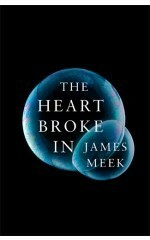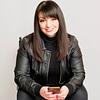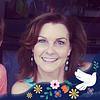Take a photo of a barcode or cover
Im Klappentext ist nur eines von mehreren äußerst spannenden Handlungssträngen erwähnt. Hier handelt es sich um einen großen Roman über zwischenmenschliche Beziehungen aller Art. Vater und Sohn, Onkel und Neffe, Mann und Frau, Bruder und Schwester, Bruder und Bruder - Liebe, Eifersucht, Geheimnisse, Verrat und Ehre... James Meek schafft Situationen und Konstellationen, wie sie das Leben schreibt. Manchmal traurig, manchmal schwer - aber immer real und nie langweilig. Ein Buch, das mich positiv überrascht hat. Solche Bücher mag ich.
One of the few fiction books that captures scientists accurately. I found the story fascinating, the characters were very flawed and believable and I couldn't help myself but root for them. I highly recommend it, especially to scientists
Almost a week after finishing this, what sticks with me most is the unpleasantness of these characters. That, and the overall feeling of "so what?" with which I finished the book. This may feel to some like an urgent and of-the-moment slice of life, and it is quite skillfully done, but I was largely unmoved.
(In fairness, I note that two sequences - - affected me greatly. Both felt true.)
(In fairness, I note that two sequences -
Spoiler
Alex and Bec falling in love in Africa and Bec agonizing over her betrayal of Alex back in London
A bit long, and the ending felt like a bit of an anticlimax. Some great moments, but couldn’t help feel the overall writing was a bit convoluted for me…
challenging
emotional
reflective
sad
slow-paced
Plot or Character Driven:
Character
Strong character development:
Yes
Loveable characters:
Yes
Diverse cast of characters:
Yes
Flaws of characters a main focus:
Yes
dark
emotional
tense
slow-paced
Plot or Character Driven:
Character
Strong character development:
Complicated
Loveable characters:
Complicated
Diverse cast of characters:
Yes
Flaws of characters a main focus:
Yes
“Right vs. Wrong”—a singular and ubiquitous concept that couples two subjective and relative ideas in an eternal struggle—is a well-travelled theme in literature. The moving and complex “moral thriller”* The Heart Broke In pulls the thread that ties this conceptual couple together, separates them and then precisely strips each component idea—“right” & “wrong”—into their respective pieces. Simply put: when it comes to human behavior and action, the idea of “right vs. wrong” is falsely binary, childishly simplistic, and hopelessly reductive.
I’ll leave explication of the plot to the book jacket and publisher’s press materials. While the story is tight and well-constructed by author James Meek, I’m more impressed by (and interested in writing about) the themes and ideas of the book. What Meek has to say is important, if not ground-breaking, but how Meek says it is masterful. The author takes a fairly standard intersecting-lives story structure and successfully uses his main characters to explore the motivations, environmental, social and cultural factors, relationships (both familial and romantic), competing values and needs, faiths, beliefs and worldviews that comprise the context in which an individual acts and reacts to another individual.
Three of the main characters are cellular biology researchers and Meek writes about the cell (structure, diseases, evolution of) with such ease and alacrity that it not only makes a difficult and esoteric subject accessible but more importantly enables him to unite the enormous (global epidemiology) and the personal (human behavior) with a single, deftly constructed metaphor. I.e., human behavior, when viewed at the cellular level is just as complex, interdependent, ineffable and mysterious as cancer is to the human body.
A person’s motivations for any given action is manifold and unknown to the outside—frequently unknown to that person him- or herself. The right motives can produce the wrong behaviors, depending on what vantage from which you view them. Wrong motives can result in the right action. Wrong motives and wrong action can create a good outcome—again, depending on who you are and where you’re viewing it. While this could descend into a hopeless morass of moral relativism, I would contend that Meek establishes a pretty clear moral framework that accepts the subjective needs and viewpoints of the actor and the complete lack of control that person has on the interpretation of his/her actions once completed.
The Heart Broke In is a cerebral exercise in exploring the heart of man. ** Getting to a person’s heart by way of the brain is a circuitous, confusing, difficult and necessary route. Approach it any other way and you’re dealing with a massive cluster of heart cells, not a human heart.
*The term “moral thriller” was cribbed from a blurb on the book’s jacket. The term was too apt to not reappropriate it.
**This review makes the book sound like a stuffy, pretentious and, most of all, boring tome. It is anything but. Engaging, deftly-paced, at times witty and utterly readable, The Heart Broke In sparkles like an ice sculpture (and is about as warm).
I’ll leave explication of the plot to the book jacket and publisher’s press materials. While the story is tight and well-constructed by author James Meek, I’m more impressed by (and interested in writing about) the themes and ideas of the book. What Meek has to say is important, if not ground-breaking, but how Meek says it is masterful. The author takes a fairly standard intersecting-lives story structure and successfully uses his main characters to explore the motivations, environmental, social and cultural factors, relationships (both familial and romantic), competing values and needs, faiths, beliefs and worldviews that comprise the context in which an individual acts and reacts to another individual.
Three of the main characters are cellular biology researchers and Meek writes about the cell (structure, diseases, evolution of) with such ease and alacrity that it not only makes a difficult and esoteric subject accessible but more importantly enables him to unite the enormous (global epidemiology) and the personal (human behavior) with a single, deftly constructed metaphor. I.e., human behavior, when viewed at the cellular level is just as complex, interdependent, ineffable and mysterious as cancer is to the human body.
A person’s motivations for any given action is manifold and unknown to the outside—frequently unknown to that person him- or herself. The right motives can produce the wrong behaviors, depending on what vantage from which you view them. Wrong motives can result in the right action. Wrong motives and wrong action can create a good outcome—again, depending on who you are and where you’re viewing it. While this could descend into a hopeless morass of moral relativism, I would contend that Meek establishes a pretty clear moral framework that accepts the subjective needs and viewpoints of the actor and the complete lack of control that person has on the interpretation of his/her actions once completed.
The Heart Broke In is a cerebral exercise in exploring the heart of man. ** Getting to a person’s heart by way of the brain is a circuitous, confusing, difficult and necessary route. Approach it any other way and you’re dealing with a massive cluster of heart cells, not a human heart.
*The term “moral thriller” was cribbed from a blurb on the book’s jacket. The term was too apt to not reappropriate it.
**This review makes the book sound like a stuffy, pretentious and, most of all, boring tome. It is anything but. Engaging, deftly-paced, at times witty and utterly readable, The Heart Broke In sparkles like an ice sculpture (and is about as warm).
Two families, brought together by music and love, fight and make up, fight and don't make up, betray each other and love each other. And ultimately go their separate ways. I enjoyed the tale.
I'm a notoriously positive reviewer. I hardly ever give something less than 4 stars because I always find things to like about novels. Take this one, I enjoyed the writer's style of writing. BUT, I didn't like any of the characters (one in particular turned my stomach) and I just was not at all invested in what happened to them. I see many people enjoyed this book but I will tell you, I am not one of them.
I only finished it because I did not stock up on books before the shelter in place took effect.




